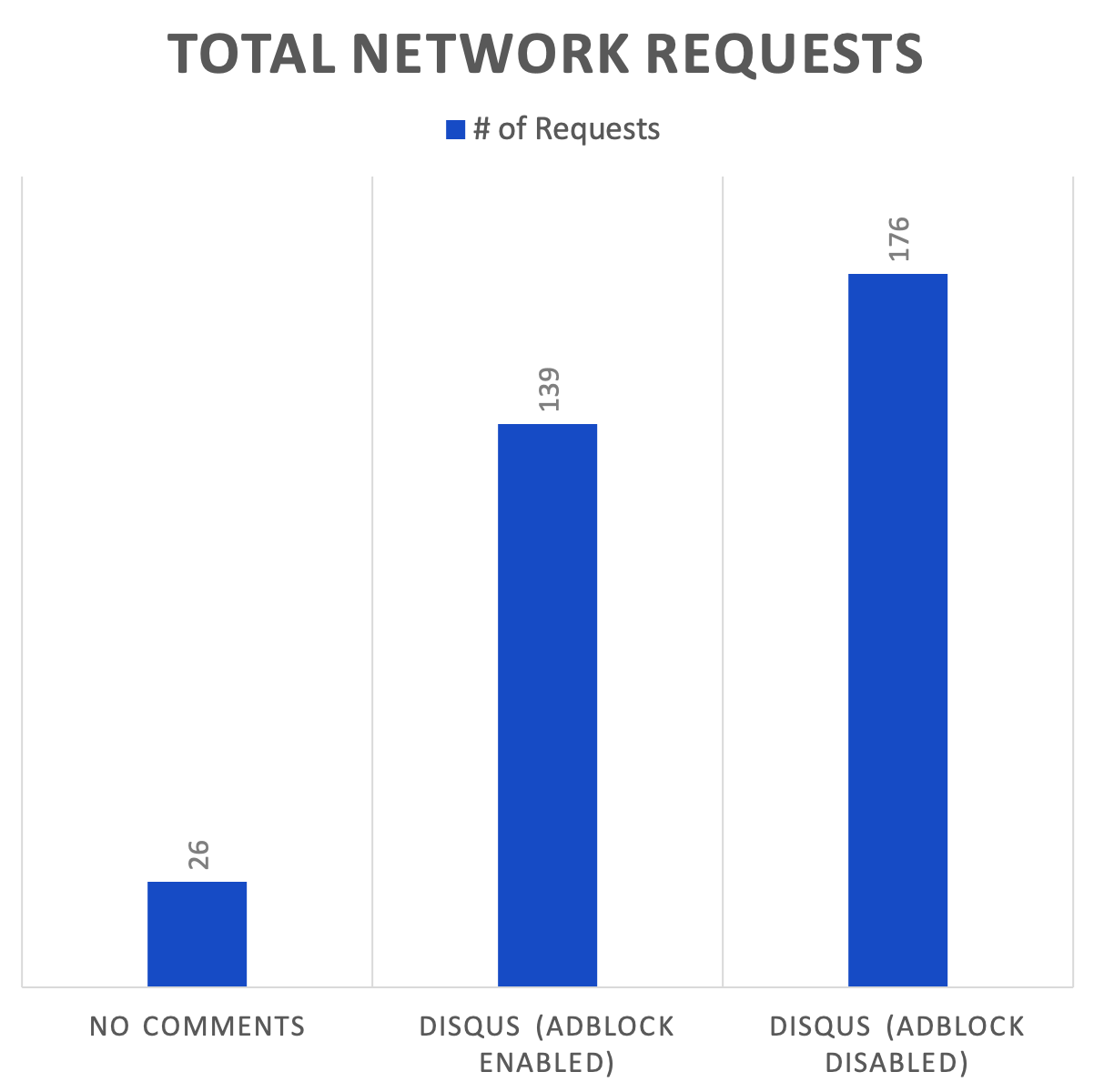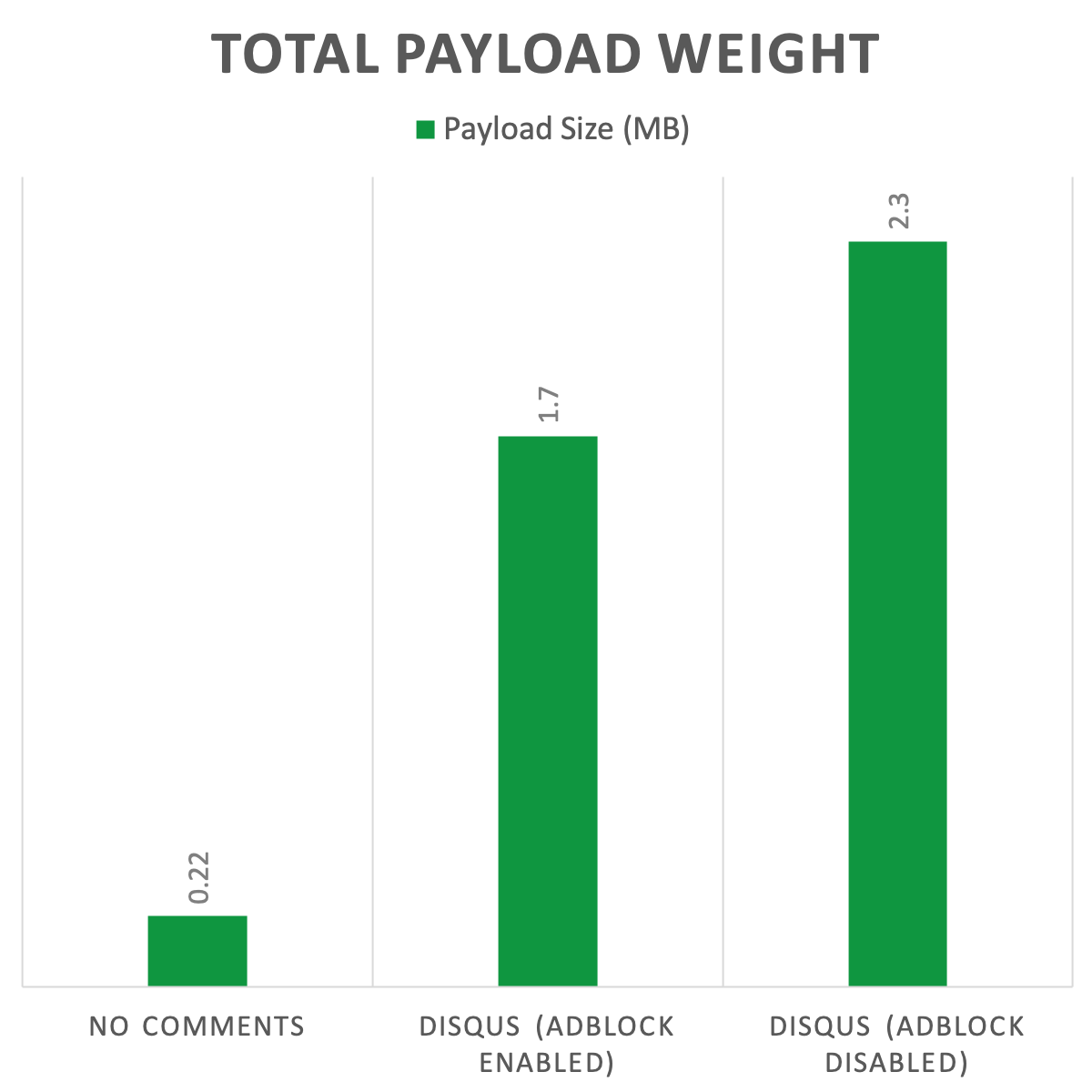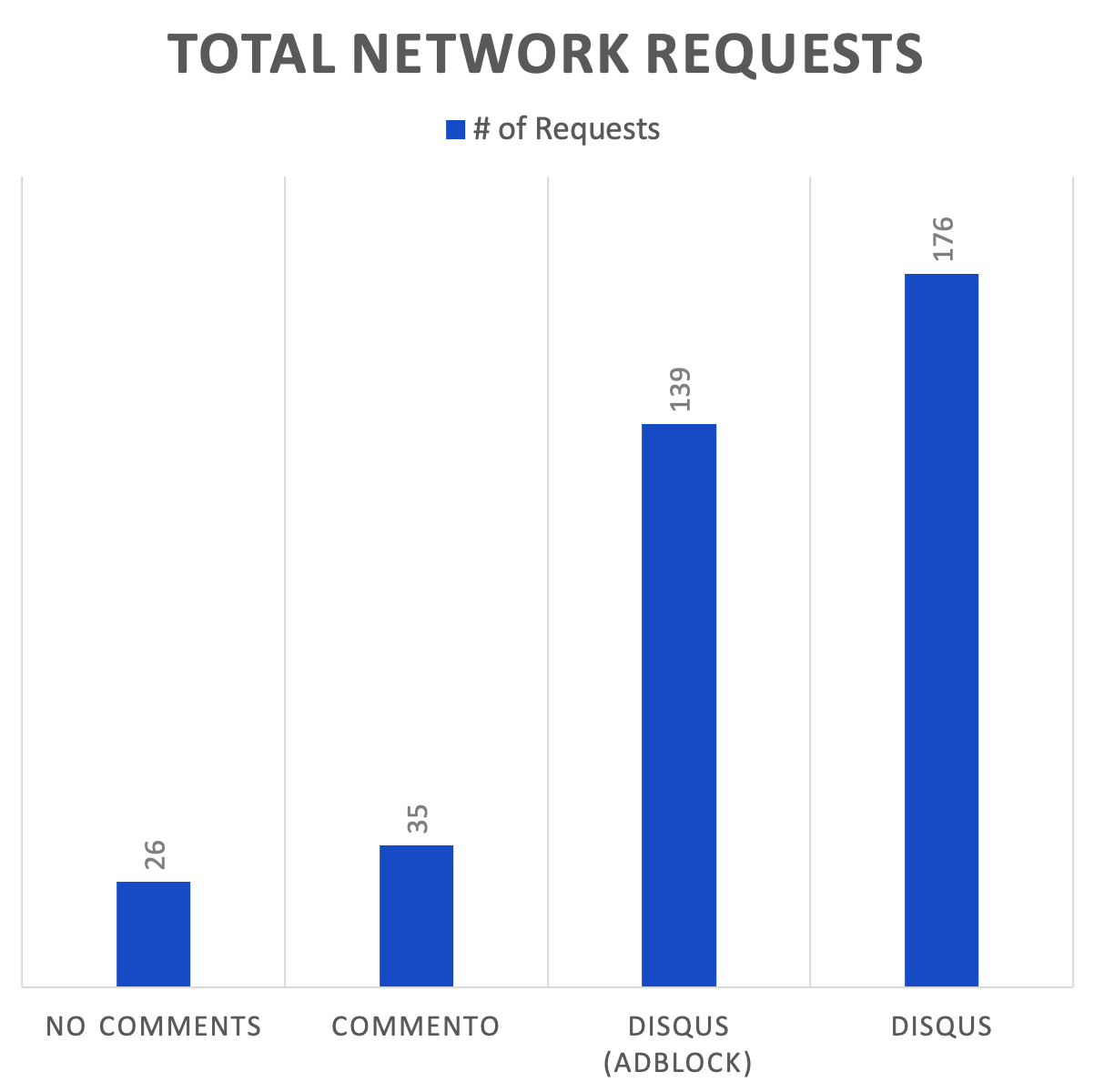Why did I refuse Disqus and you should go too
- Transfer
Replacing Disqus with Commento reduced page size by 10 times

When I started a blog, I installed Disqus for comments. It was a natural choice: sites all over the Internet installed Disqus, it is easy to set up, and there is a free use case. I calmly integrated the comment engine and moved on.
But here's the thing: I always knew that Disqus was a little inflated page. I wrote about web performance and usually tried to optimize pages. But I just assumed that Disqus adds a little extra kilobytes. Logic: if he strongly inflates the pages, everyone would have long abandoned him. Obviously, Disqus is trying not to increase traffic, right?
I was wrong. Last week, I finally did what I had to do from the very beginning: I took it and checked it. Here are the results (tested on my article about Webpack ):


Disqus increased the page size by more than 10 times, and the number of requests by more than 6 times . This is just nonsense! I immediately started looking for a Disqus replacement based on web performance .
I recently saw a post on Hacker News about an alternative to Disqus called Commento with a focus on performance and privacy. In order not to repeat the previous mistakes, I immediately ran the tests:


There is a difference. Commento is much easier than Disqus.
Moreover, it has other advantages:
Commento works fine for me, although you can choose another good, lightweight platform for comments.
Are you still using Disqus? Do you know how much he is inflating pages? What prevents switching?

When I started a blog, I installed Disqus for comments. It was a natural choice: sites all over the Internet installed Disqus, it is easy to set up, and there is a free use case. I calmly integrated the comment engine and moved on.
But here's the thing: I always knew that Disqus was a little inflated page. I wrote about web performance and usually tried to optimize pages. But I just assumed that Disqus adds a little extra kilobytes. Logic: if he strongly inflates the pages, everyone would have long abandoned him. Obviously, Disqus is trying not to increase traffic, right?
I was wrong. Last week, I finally did what I had to do from the very beginning: I took it and checked it. Here are the results (tested on my article about Webpack ):


Disqus increased the page size by more than 10 times, and the number of requests by more than 6 times . This is just nonsense! I immediately started looking for a Disqus replacement based on web performance .
Alternative: Commento
I recently saw a post on Hacker News about an alternative to Disqus called Commento with a focus on performance and privacy. In order not to repeat the previous mistakes, I immediately ran the tests:


There is a difference. Commento is much easier than Disqus.
Moreover, it has other advantages:
- This is open source , which can be put on your hosting.
- It is focused on confidentiality - it does not sell user data and tries not to collect unnecessary information. This is especially nice for my blog because my readers are probably more concerned about privacy than the average Internet user.
- Pay as much as you want . The free Disqus tier delivers ads, and the cheapest paid tier is $ 9 per month. Commento is cheaper (if you want to pay)!
- It is customizable . The Commento style can be customized to match the style of the rest of the site.
- There is a simple import from Disqus . I was able to quickly quickly transfer all the old Disqus comments to Commento.
Commento works fine for me, although you can choose another good, lightweight platform for comments.
Are you still using Disqus? Do you know how much he is inflating pages? What prevents switching?
